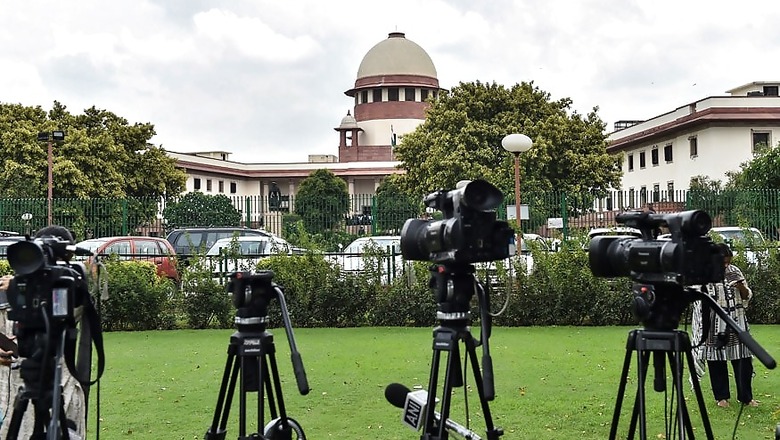
views
New Delhi: The Supreme Court on Friday ruled that the government cannot stop foreign funding of organisations that support the cause of a group of citizens agitating for their rights through legitimate methods of expressing dissent.
The court held that if the organisation is not pursuing a political goal or objective, it cannot be penalised for supporting public causes by resorting to lawful means such as strikes and protests.
"Support to public causes by resorting to legitimate means of dissent like 'bandh', 'hartal', etc., cannot deprive an organisation of its legitimate right of receiving foreign contribution," held a bench headed by Justice L Nageswara Rao. It maintained that foreign donations can be stopped "only for those organisations, which have connection with active politics or take part in party politics".
The bench read down two contentious provisions, framed under the Foreign Contribution (Regulation) Act, 2010, which authorised the government from restraining non-governmental organisations (NGOs) and other civil rights bodies from receiving foreign funds.
Under Rule 3 (v), organisations of farmers, workers, students, etc., which are not directly aligned to any political party but the objectives of which include steps towards advancement of "political interests" of such groups, can be stopped from receiving foreign donations.
Similarly, Rule 3 (vi) provided that any organisation, which habitually engages itself in or employs common methods of political action like 'bandh' or 'hartal', 'rasta roko', 'rail roko' or 'jail bharo' in support of public causes, can also be declared as an organisation of political nature. Once dubbed this, the government can stop them from receiving funds from foreign sources.
NGO Indian Social Action Forum (INSAF) challenged the validity of the provision, pointing out it violated their fundamental right since an organisation, the activity of which is to educate and promote civil, political, social, economic and cultural rights, cannot be prevented from having access to funding, whether domestic or foreign.
The NGO claimed that the provision conferred unguided and uncanalised power on the Centre to specify an organisation as that of a political nature not being a political party and deny foreign contribution. It had challenged the order of Delhi High Court dismissing its plea.
Senior advocate Sanjay Parikh, appearing for the NGO, emphasised that curtailing the right of an organisation in having access to foreign funds would result in the violation of the fundamental rights guaranteed under Articles 19(1)(a) and 19(1)(c) of the Constitution relating to free speech and peaceful protests.
The court appreciated the objective of the Act in preventing not just those in active politics but also an organisation of a political nature from receiving foreign contributions. Guidelines, prescribed by the rules, suggest that only those organisations actively involved in politics or associated with political parties can be declared as organisations of a political nature, it noted.
The bench held that the words "political interests" in Rule 3(v) are "vague and are susceptible to misuse".
"Therefore, such of those organisations which are working for the social and economic welfare of the society cannot be brought within the purview of the Act or the Rules by enlarging the scope of the term 'political interests'. We are of the opinion that the expression 'political interests' in Rule 3(v) has to be construed to be in connection with active politics or party politics," held the bench, reading down the impugned provision.
About Rule 3(vi), the top court said support to public causes by way of strikes and other forms of protests cannot deprive an organisation of its legitimate right of receiving foreign contribution.
"It is clear from the provision itself that 'bandh', 'hartal', 'rasta roko', etc., are treated as common methods of political action. Any organisation which supports the cause of a group of citizens agitating for their rights, without a political goal or objective, cannot be penalised by being declared as an organisation of a political nature," said the bench reading down this provision as well so as to save it from being declared unconstitutional.

















Comments
0 comment